Wa Samaki Ecosystems: power of organic farming
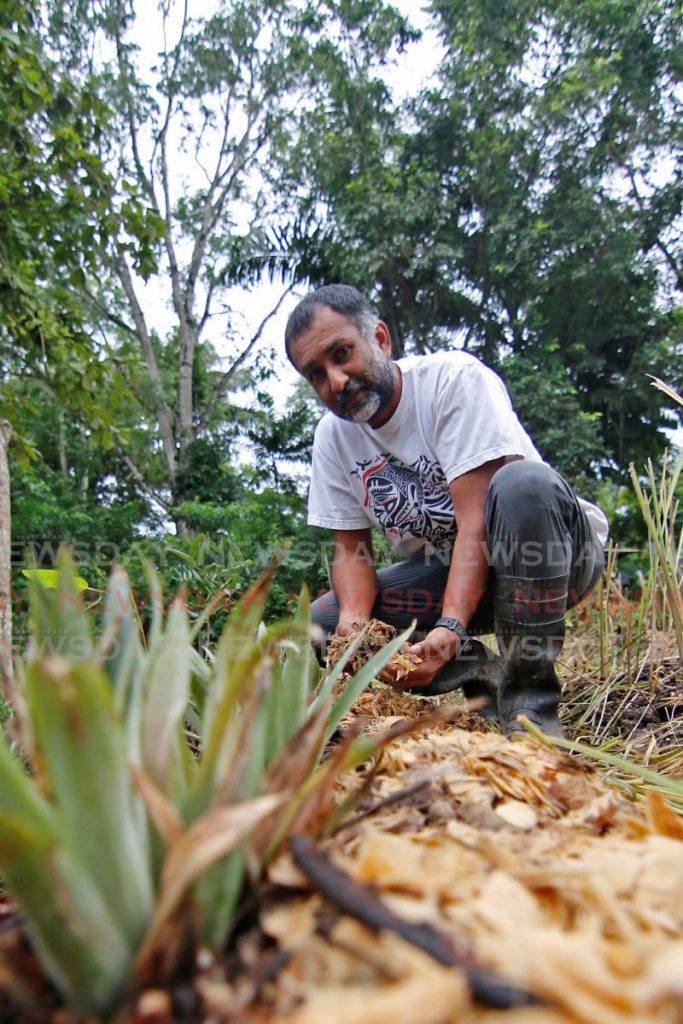
To visit Wa Samaki Ecosystems, in Freeport, is to witness the power of how organic cultivation can be self-sustaining.
At the farm, permaculture is practised, rainwater is harvested, waste is recycled, and structures are built using natural materials, such as clay. It has been viable, growing flowers for sale and workshops on sustainable farming. Those living there have very little need to depend on the outside world. Yet, the farm has not been immune to the effects of covid19.
The farm’s owner Erle Rahaman-Noronha shared how the virus has affected its operations.
Before the first round of restrictions started, in March, the farm supplied cut flowers like heliconia (balisier) and ginger lilies to four flower shops.
When retail stores, including flower shops, were deemed non-essential and closed that month, the farm immediately lost all of its revenue from flower sales.
Flower shops have since reopened but business has not recovered at the farm.
“We really rely on (only) two flower shops to keep us going right now.
“The flower shops have very little traffic coming through the door. People are just not buying flowers,” said Rahaman-Noronha. The orders have decreased in frequency and quantity.
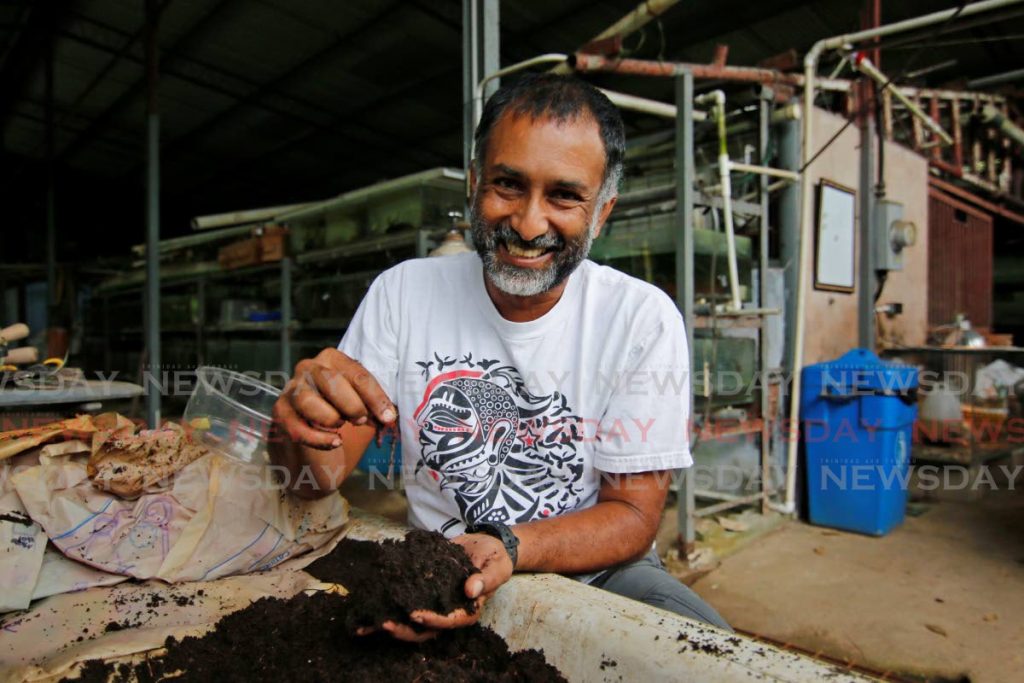
The farm, Swahili for fish, now relies on selling its organic produce of ground provisions, ginger, seasonings, and fruits. Sales have remained steady.
For those who don't know what permaculture Rahaman-Noronha said it’s commonly defined as the process of designing self-sustaining spaces that require few inputs.
In farming, for example, permaculture means designing farms that can sustain themselves without using artificial fertilisers and pesticides.
Organic fertilisers like vermicompost made using earthworms, which Rahaman-Noronha has recently started making at Wa Samaki, are used.
Regardless of the definition, permaculture is founded on three principles: care of the earth, care for people, and ensuring resources are fairly shared.
“Care of the earth is about recognising there’s a lot of living and non-living things around us. They have to be considered whenever we are doing anything," he said.
“Care of people reminds us that unless we take care of people, people can’t take care of the environment.
“Fair share means (especially if you are producing and selling stuff) it’s not that you have to give it way but it’s more that you have to be mindful that you don’t take advantage of people.”
Rahaman-Noronha taught himself everything he knows about permaculture by reading books.
Born and raised in Kenya, he moved to Canada at the age of 19 to study at the University of Guelph. There he did an undergraduate degree in molecular biology and genetics then a masters degree in zoology.
At university, Rahaman-Noronha met his now ex-wife who is a Trinidadian. After wrapping up his studies, in 1998, he moved with her to TT. They settled on the Freeport estate which was purchased with the assistance of family members.
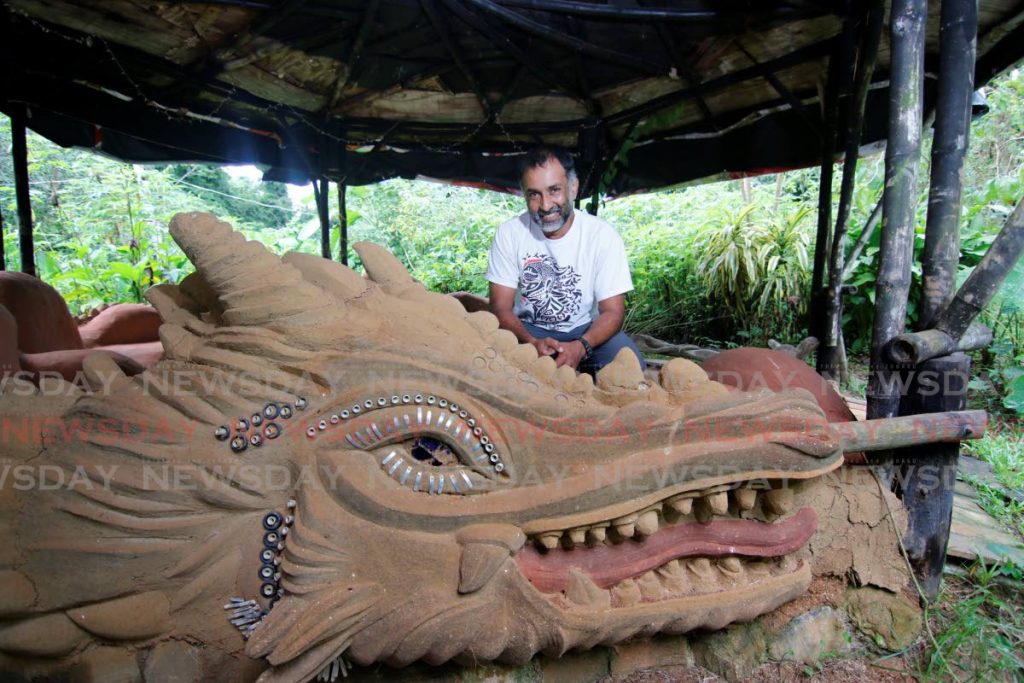
Since citrus was originally grown there, they began to cultivate the fruits and used an area to breed and export tropical fish. However, the citrus farming and fish-breeding were not profitable.
“Because it (breeding tropical fish) was a global industry I was competing in, I got out competed by people in places like Taiwan.
“They (in Taiwan) were producing and shipping fish to Canada cheaper than I was.
“We were also not making money with citrus. At that time, there were a lot of government citrus farms and we could not compete with them.”
That's when they started practising permaculture by plating teak trees and producing cut-flowers.
“I don’t have a farming background. I’ve pretty much taught myself everything over the last 23 years. I’ve learnt from books and taking workshops.
“When we first started (permaculture), a lot of people didn’t believe in what we were doing.”
Today, Rahaman-Noronha cares for the farm with help from his daughter Maleah, one full-time staff member and volunteers.
Over the years, the farm has attracted local and foreign visitors for recreational and educational activities. People usually paid $50 to visit for recreation.
Before covid19, the farm hosted workshops on topics such as woodworking, permaculture design, making organic fertilisers, natural pesticides, clay bricks from clay, and saving seeds.
Each workshop cost anywhere from a few hundred to a few thousand dollars with as many as 25 participants.
The workshops were stopped in March and the farm was closed, but in October, following the latest ease on restrictions, Rahaman-Noronha restarted small workshops with a limit of 10 participants. But the workshops aren’t as profitable anymore.
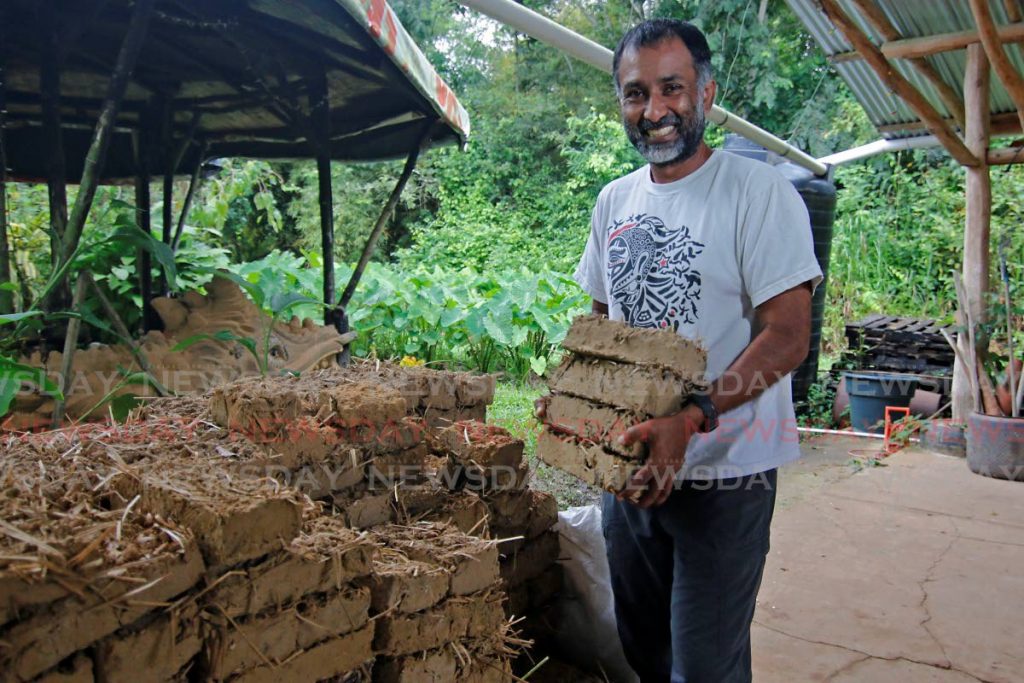
“Every time I do a workshop it takes the same amount of time to do a 30-person workshop as it takes to do a ten-person workshop. But the income’s a lot less.”
Last year, Rahaman-Noronha started a three-month internship programme for five foreign students. On average, each intern would pay US$2,200 for several courses, including one for two weeks on permaculture design.
Explaining the fee, Rahaman-Noronha said, “Most places (around the world), where you get to take permaculture course, it can cost almost US$1500. That’s usually for two weeks and people still have to pay for tickets as well as other expenses.
“By coming for an internship here, you get the permaculture course plus three months of training with all our other activities.”
If global travel restrictions continue through 2022, Rahaman-Noronha estimates he may lose over US$70,000 in potential revenue from not being able to run the programme.
“Now it looks like people may not be able to travel for the next year or two. That whole (internship) programme would have to be placed on standby. That part of our income will be probably non-existent for the next two years.”
It is difficult for Rahaman-Noronha to do workshops and internships online because permaculture requires practical experience.
While the farm has taken a financial blow, he is working to diversify its revenue streams. The farm recently started selling “survivor packs” which consist of 40 different seedlings and cuttings.
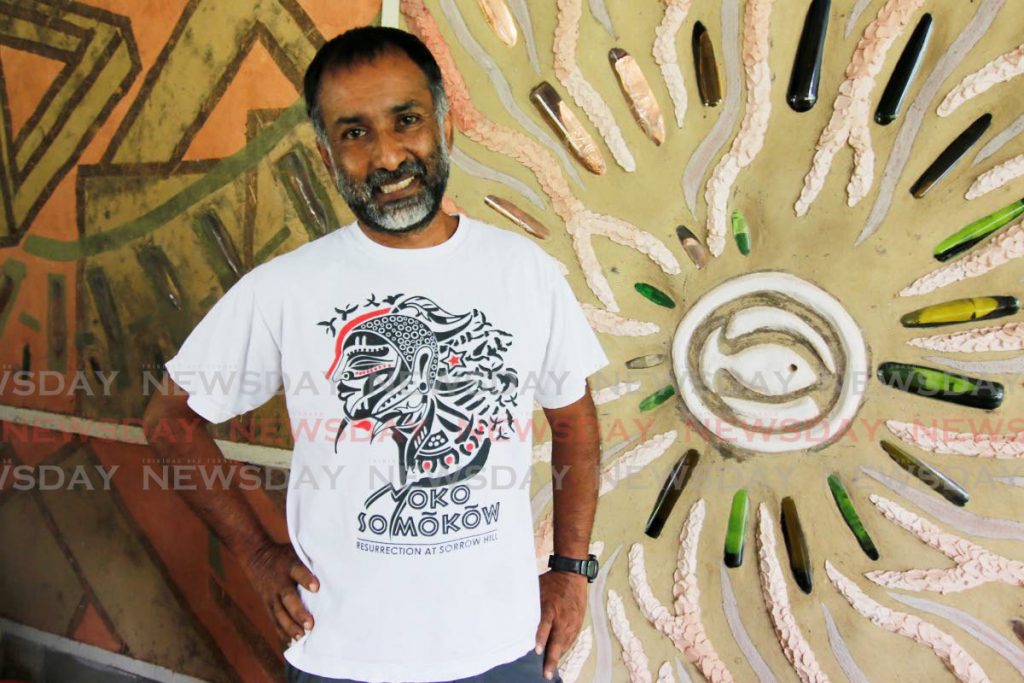
“The pack has stuff that you can plant in your garden and start you on the way of making your garden more diverse. It also helps you ensure food security by growing these things.”
The packages have been selling well, he said, and hopes it encourages people to grow their own food.
“Permaculture itself teaches people how to be self-reliant. If everyone does it, we can eliminate a lot of (food) imports.”
“Permaculture is called the quiet revolution because it is trying to slowly untangle people from the rat race where everyone is reliant on imports.”
With people growing their own food, he said, there can be greater food security.
For people who live in urban areas and may think practising permaculture is not possible, Rahaman-Noronha has some advice.
“There is a large and growing urban permaculture movement.
“As long as you have sunlight, you can put something in a pot and grow it even if you just have a balcony in an apartment.”
To government officials and city planners, he suggests using green spaces in urban communities to create communal green spaces.
“Long ago, for example, most villages met under a big mango tree. Most of the big mango trees, no one knew who planted them, but they provided for a community for generations.
“Now, if you go to most playing fields, they cut down all the trees and don’t allow a lot of fruit trees around the site.
“But all of that (fruit trees) can be put in the community so people can benefit from just little things like that.”
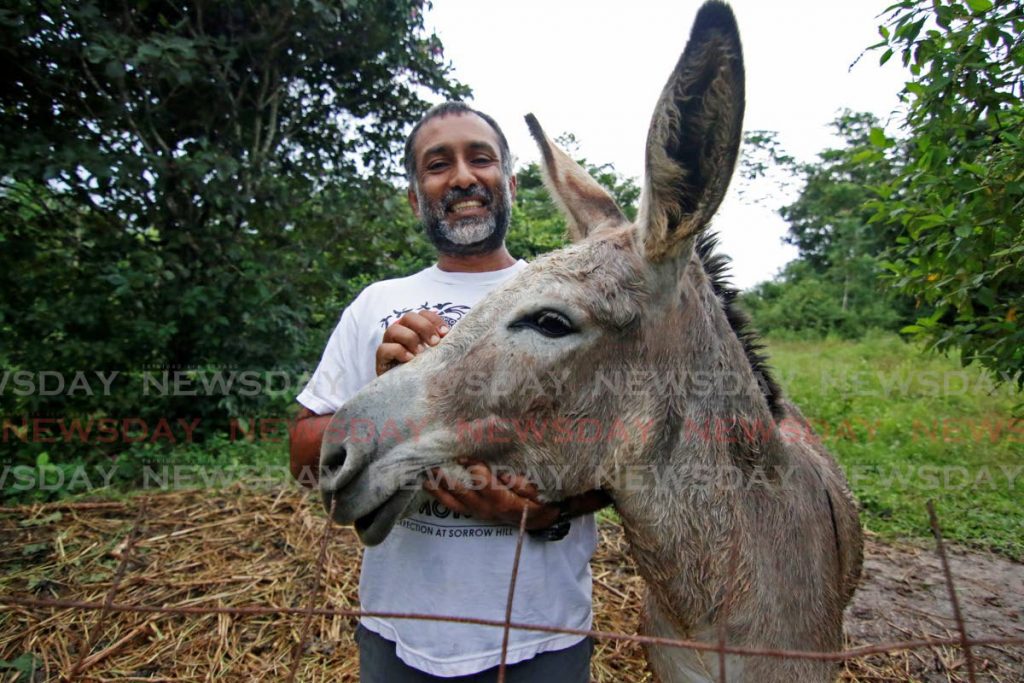
Before the pandemic, the farm faced an annual environmental threat during the dry season– bush fires.
In 2016, one of the farm workers died while battling a bush fire.
It is a cautionary tale about the danger bush fires pose, especially to agricultural operations.
“The fires are especially dangerous when you are growing trees that have a 30-year cycle. In one year, you can lose 30 years of work (because of bush fires).
While law enforcement has tried to deal with the issue, Rahaman-Noronha said their attempts have been mostly futile.
Despite the challenges, he remains hopeful and wants people to start believing in the power of agriculture and recognise its financial value.
People interested in taking courses at the farm, visiting or buying produce can get more information by visiting the farm’s website: www. https://www.wasamakipermaculture.org. The farm can also be found on Facebook at: Permaculture Trinidad: Wa Samaki Ecosystems.


Comments
"Wa Samaki Ecosystems: power of organic farming"